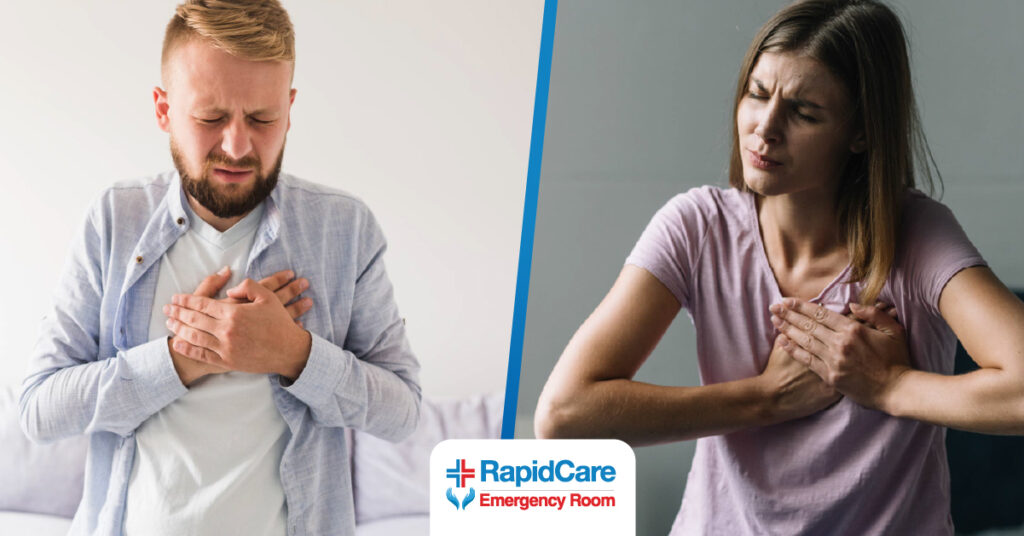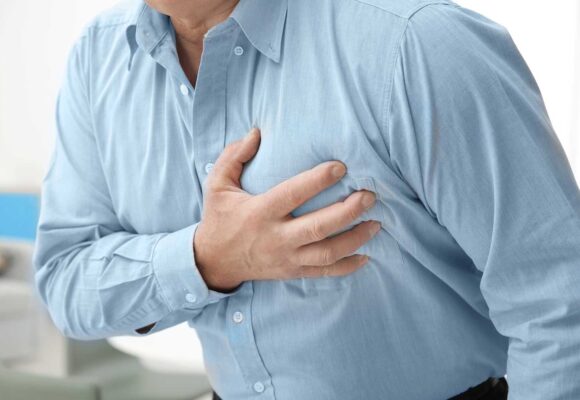Signs of a Heart Attack in Men & Women – American Heart Month
Heart disease is the leading cause of death for both men and women in the United States, and every year more than 800,000 Americans suffer a heart attack. And in Texas, heart disease claims the lives of more than 45,000 residents every year.
What is a Heart Attack?
Heart attacks are serious medical emergencies that happen when the blood supply to the heart is suddenly blocked or diminished.
Blockages are usually due to plaque build-up (caused by cholesterol and other substances) in the arteries. The build-up makes it harder for blood to flow normally, and sometimes debris can become loose and cause a clot that cuts off circulation in the heart.
The reduced blood flow can severely damage the heart muscle and threaten the patient’s life, making the condition a time-sensitive emergency.


Catch the Warning Signs Early
Prompt medical intervention is needed when a heart attack occurs to help prevent long-term disability and death.
Please call 911 immediately if you experience any of the following symptoms:
Chest Pain
Heart attack-related chest pains or discomfort can often feel like tightness or uncomfortable pressure, mainly in the center or left side of your chest.
Pay attention to any chest pain or discomfort that lasts more than a few minutes or pain that comes and later returns.

Pain in Other Parts of the Body
If you experience pain or discomfort that radiates from your chest onto your neck, back, shoulders, arms, jaw, or stomach, call 911, as these could be signs of a heart attack.
Feeling Dizzy or Lightheaded
Many patients experience dizziness or feeling faint. In addition, to the dizziness, some patients also break out in a cold sweat

Severe Anxiety Similar to a Panic Attack
Unexpected palpitations and feelings of anxiety can be warning signs of a heart attack. Pay close attention to see if you develop other common symptoms.
Shortness of Breath
Shortness of breath can appear on its own or with chest pains. Regardless, having trouble breathing is always cause for concern, and you should seek medical help.

Do Women Experience Different Symptoms?
Most heart attack patients share common symptoms like the ones listed above. However, women are more susceptible to experiencing other symptoms, such as:
- Feeling Nauseous
- Vomiting
- Unexplained fatigue or tiredness
- Pain in the upper abdomen
- Indigestion or heartburn
What to Do If You Suspect You Have a Heart Attack
If you develop any of the symptoms listed above, don’t waste a single minute. Instead, call 911 or have someone drive you to the closest emergency room.
Do not drive yourself to the ER, as this can place you and others in danger if you become impaired while driving.
Call ahead or use our online check-in feature, so we know of your impending arrival and meet you at the door. The sooner we start treating you, the better the outcomes.
At Rapid Care, we are open 24/7, and our expert licensed doctors and nurses are available to handle time-sensitive emergencies.